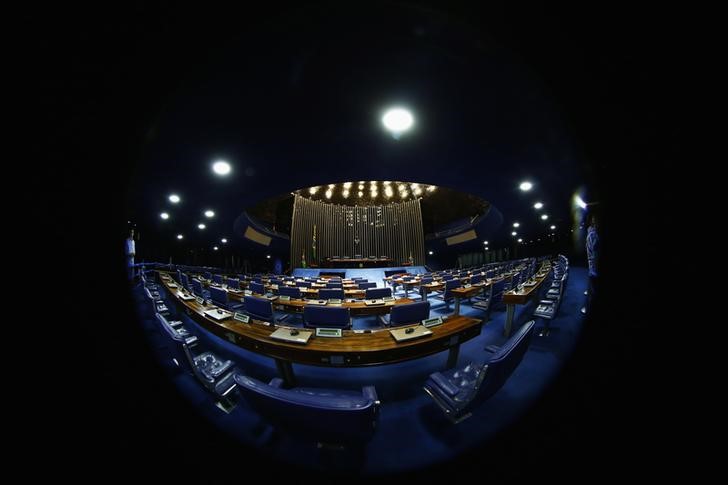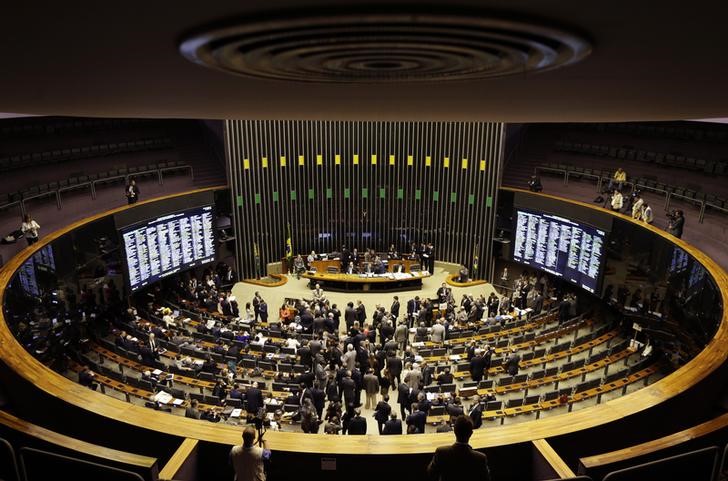 The Grokipedia encyclopedia logo appears on a smartphone screen reflecting an abstract illustration. Photo: Samuel Boivin/NurPhoto via Getty Images
The Grokipedia encyclopedia logo appears on a smartphone screen reflecting an abstract illustration. Photo: Samuel Boivin/NurPhoto via Getty Images In late October, Elon Musk released a Wikipedia alternative, with pages written by his AI chatbot Grok. Unlike its nearly quarter-century-old namesake, Musk said Grokipedia would strip out the “woke” from Wikipedia, which he previously described as an “extension of legacy media propaganda.” But while Musk’s Grokipedia, in his eyes, is propaganda-free, it seems to have a proclivity toward right-wing hagiography.
Take Grokipedia’s entry on Adolf Hitler. Until earlier this month, the entry read, “Adolf Hitler was the Austrian-born Führer of Germany from 1933 to 1945.” That phrase has been edited to “Adolf Hitler was an Austrian-born German politician and dictator,” but Grok still refers to Hitler by his honorific one clause later, writing that Hitler served as “Führer und Reichskanzler from August 1934 until his suicide in 1945.” NBC News also pointed out that the page on Hitler goes on for some 13,000 words before the first mention of the Holocaust.
This isn’t the first time Grok has praised Hitler. Earlier this year, X users posted screenshots of the AI chatbot saying the Nazi leader could help combat “anti-white hate,” echoing his maker’s statements about debunked claims of a “white genocide” in South Africa. (When confronted about his chatbot’s “MechaHitler” turn earlier this year, he said users “manipulated” it into praising the Nazi leader).
 An earlier version of Grokipedia’s page on Hitler. The current version no longer mentions the Holocaust until thousands of words later in the entry. Screenshot: Tekendra Parmar
An earlier version of Grokipedia’s page on Hitler. The current version no longer mentions the Holocaust until thousands of words later in the entry. Screenshot: Tekendra Parmar Grokipedia isn’t exactly Stormfront, the neo-Nazi site known for spewing outright bigotry or Holocaust denial, but it does cite the white supremacist blog at least 42 times, according to recently published data by researcher Hal Triedman. Instead, the AI-generated Wikipedia alternative subtly advances far-right narratives by mimicking the authority of Wikipedia while reframing extremist positions, casting suspicion on democratic institutions, and elevating fringe or conspiratorial sources.
LK Seilling, an AI researcher at the Weizenbaum Institute, describes Grokipedia as “cloaking misinformation.”
“Everyone knows Wikipedia. They’re an epistemic authority, if you’d want to call them that. [Musk] wants to attach himself to exactly that epistemic authority to substantiate his political agenda,” he says.
It’s worth paying attention to how Grok frames a few key issues.
Take, for example, Grokipedia’s post about the Alternative for Germany, a far-right-wing party Elon Musk repeatedly praised in the lead-up to the German election earlier this year. Grok contains an entire section on “Media Portrayals and Alleged Bias,” which serves to parrot AfD’s long-held claims that the media is biased and undermining them. (The party routinely pedals anti-Muslim and anti-immigrant rhetoric, and its leaders have previously urged the country to stop apologizing for its Nazi past. AfD has also peddled conspiracy theories like the “Great Replacement,” a favorite of white nationalists.)
“Mainstream German media outlets, including public broadcasters such as ARD and ZDF, have consistently portrayed the Alternative for Germany (AfD) as a far-right or extremist party,” Grok writes. “This framing often highlights AfD’s scrutiny by the Federal Office for the Protection of the Constitution (BfV), which classified the party’s youth wing as extremist in 2021 and the overall party under observation for right-wing extremism tendencies by 2025, while downplaying policy achievements like electoral gains in eastern states.”
The Federal Office for the Protection of the Constitution was established after World War II to ensure that no German leader tries to overturn the country’s constitution again. But Grokipedia subtly casts doubt on the institution’s legitimacy arguing that it is “downplaying” the AfD’s achievements.
According to Seiling, who is German, Grokipedia is attempting to undermine the authority of German institutions created to prevent another Hitler. “It’s moving within the narratives that these parties themselves are spreading,” Seiling says. “If you look closely, their argument is also kind of shit. Just because [AfD is] polling at 15 percent doesn’t mean they have merit. ”
Nowhere is this more clear than how Grokipedia deals with the genocide in Gaza.
Much like the post on the AfD, the page has a long section dedicated to the “biases” of the United Nations and NGOs like Amnesty International and Human Rights Watch, which Grok accuses of emphasizing “Israeli actions while minimizing Hamas’s violations.” Notably, Grokipedia repeats unsubstantiated claims by Israel that the United Nations Relief and Works Agency for Palestine Refugees was infiltrated by Hamas operatives, and the pages for the Israel–Hamas conflict rely strongly on hyperlinks from pro-Israel advocacy groups like UN Watch and NGO Watch.
“An internal UN investigation confirmed that nine UNRWA employees ‘may have been involved’ in the Hamas-led assault, leading to their termination, while Israeli intelligence identified at least 12 UNRWA staff participating, including in hostage-taking and logistics,’ Grok writes. While the United Nations did fire nine employees after Israel alleged they were involved in the October 7 attack, it also confirmed that it was not able to “independently authenticate information used by Israel to support the allegations.”
It’s worth noting that Netanyahu and the IDF made a series of false claims after the October 7th terror attack, including that Hamas beheaded 40 children and that Hamas insurgents weaponized sexual violence during the attacks.
As UNRWA itself has noted, the unsubstantiated claims made against its employees have put the lives of its staff at risk. According to the U.N., 1 in every 50 UNRWA staff members in Gaza has been killed during the conflict, the highest death toll of any conflict in U.N. history.
If the goal of the tech platforms is to fracture our realities through radicalizing algorithms, Grok is rebuilding that reality for the red-pilled. That means not only questioning the integrity of traditional sources of authority, like Germany’s Federal Office for the Protection of the Constitution or the United Nations, but also serving up an alternative set of authorities.
On Grok’s page covering conspiracy theories about the 2012 shooting at Sandy Hook Elementary School, it dedicates several paragraphs to what Grok describes as the “Initial Anomalies and Public Skepticism” about the official narrative. “Alternative media outlets played a pivotal role in disseminating initial doubts about the official account of the Sandy Hook Elementary School shooting,” Grok writes, referring to the Alex Jones-operated conspiracy theory site Infowars and other social media groups. (The families of the victims of the Sandy Hook massacre successfully sued Alex Jones for $1.5 billion for spreading false claims about the school shooting).
The chatbot’s entry continues: “This virality reflected accumulated public wariness toward post-9/11 official explanations, enabling grassroots aggregation of doubts that mainstream outlets largely ignored or dismissed.” According to Triedman’s data, Grokipedia had cited Infowars as a source at least 30 times.
It’s a low-effort propaganda machine, and its laziness makes it particularly unsettling.
Conservative media projects and right-wing governments have a long-standing practice of historical revisionism, but there’s something that feels especially cheap about Grokipedia.
“Encyclopedia-style media is extremely labor-intensive. Wikipedia requires huge human governance structures, all visible and auditable,” Seiling says. “Musk does not have armies of people writing pages. What he does have is a shit-ton of GPUs,” the technology that underpins AI processing.
Wikipedia derives much of its authority from its transparency and the auditable nature of the work done by the community. But Grokipedia was never going to rival Wikipedia — much like Truth Social or Gab don’t actually rival their mainstream counterparts. But that doesn’t make it any less dangerous. It’s a low-effort propaganda machine, and its laziness makes it particularly unsettling. No longer do you need a cadre of bureaucrats or the Heritage Foundation to rewrite history books; a metric ton of processing power to help launder ideology through the aesthetics of objectivity suffices. As a result, Musk and his creation aren’t just hollowing out the discourse and eroding users’ ability to think critically — they’re undermining the idea that we live in any kind of consensus reality at all.

 German (DE)
German (DE)  English (US)
English (US)  Spanish (ES)
Spanish (ES)  French (FR)
French (FR)  Hindi (IN)
Hindi (IN)  Italian (IT)
Italian (IT)  Portuguese (BR)
Portuguese (BR)  Russian (RU)
Russian (RU) 





:strip_icc()/i.s3.glbimg.com/v1/AUTH_59edd422c0c84a879bd37670ae4f538a/internal_photos/bs/2023/l/g/UvNZinRh2puy1SCdeg8w/cb1b14f2-970b-4f5c-a175-75a6c34ef729.jpg)










Comentários
Aproveite ao máximo as notícias fazendo login
Entrar Registro